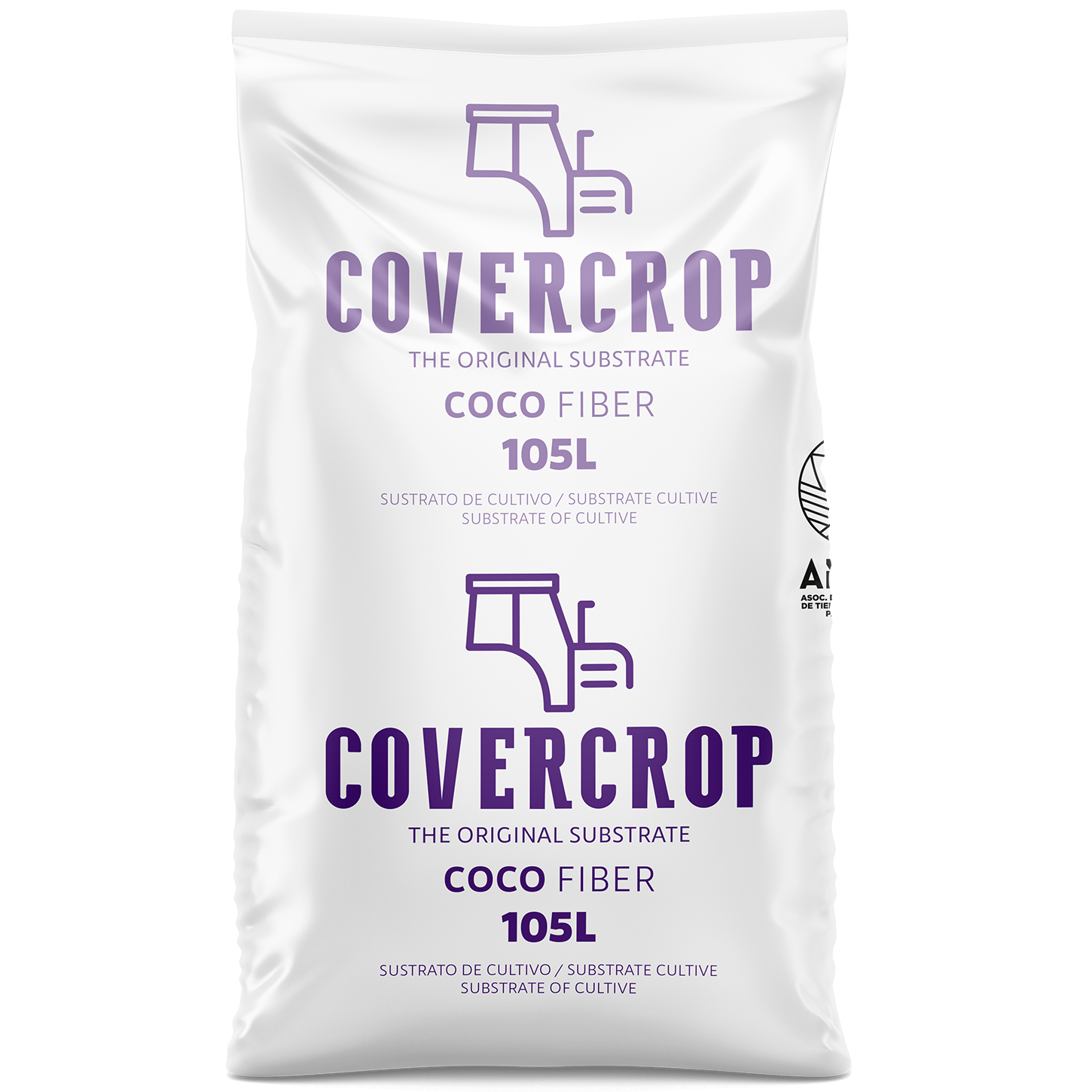Covercrop
Coconut Fiber Covercrop
SUST0123
The quality of Covercrop coconut fiber, from the best producers in India, is especially recommended for hydroponic cultivation, but also, thanks to its enrichment with NPK fertilizer, it provides an ideal natural substrate for all types of crops.
It is also recommended for the improvement of soils or mixtures of other substrates. Provides a space where the air-particle ratio is optimal for water retention and root development.
Coconut fiber is obtained from the shell of the fruits of the Cocos Nucifera palm tree. The industry processes the fruit, the coconut, and one of its uses is that of the fibers from the upper part of the shell for use in gardening and horticulture as a substrate. Up to three types of granulometry are processed and mixed: Fine powder: it has the appearance of fine peat and increases the capacity to retain water. Standard and thick (chip): They are particles between 0.2 to mm. That favor a correct aeration of the substrate.
On the other hand, thanks to the high cation exchange capacity of Covercrop Coco, positively charged nutrients such as Na + and K + cations are released and made available to the plants during cultivation. On the contrary, bivalent cations such as Ca2 + and Mg2 +, remain fixed to the fibers of the substrate and will not be available to the plants to the same extent as Na and K. This is corrected by subjecting the substrate to a double previous treatment known as washing and buffering . According to which, the coconut fibers are subjected to a series of washes with water so that excess sodium and chlorides are eliminated.
Subsequently, the substrate is improved based on calcium nitrate with the intention of improving the calcium-potassium exchange. This correction is what is called damping and it ensures that the coconut substrate does not release too much potassium or retain too much calcium or magnesium so that they are available to plants.
Highly recommended for:
- Seed Germination
- Cuttings
- Indoor and Outdoor Crops
Among others, its main physical and chemical characteristics are:
- NPK concentration: 12-14-24
- Ph: 5.5-6
- Ec: 0.039 mS / cm = 39 ÁS / cm
- Percentage of aeration: 10-40%
- Water retention capacity: up to 50%
- Cation Exchange Capacity (CEC): 70-100meq / 100g
- Density: 0.36g / l
- Cellulose content: 20-30%
Composition:
- Nitrogen
- Match
- Potassium
- Iron





